Attorney Robert G. Stahl Represents Dias Kadyrbayev, Exchange College Student From Kazakhstan Charged With Obstruction in the Boston Marathon Aftermath Interviewed by RTVI, Russian TV
Attorney Robert G. Stahl, of the Stahl Gasiorowski Criminal Defense Lawyers in New York and New Jersey, was interviewed by the Russian-language network RTVI in April 2014.
Stahl is the criminal defense attorney who is defending Dias Kadyrbayev, the exchange college student from Kazakhstan charged with obstruction in connection with the Boston Marathon aftermath. His trial is scheduled to begin September 8th in Boston Federal Court.
The half-hour RTVI program was broadcast by cable providers across the United States who serve Russian-speaking viewers as well as overseas cable providers.
As an Assistant U.S. Attorney in the 1990’s, Stahl had prosecuted the largest fuel excise tax case in U.S. history in its time. That case involved Russian nationals and emigrants to the U.S. Now in private practice, Stahl has traveled to Russia, Singapore and the Middle East to represent clients in both civil and criminal matters. Now, in private practice since 1997, Stahl has devoted his practice to defending complex criminal and civil cases.
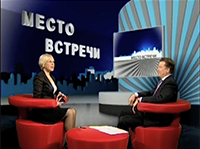
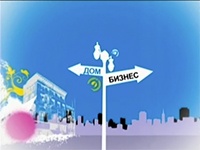
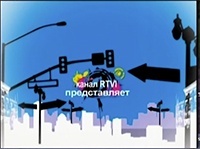
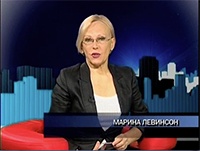
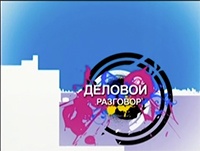
Among the questions posed to Attorney Stahl by host Marina Levinson on RTVI were:
You are a New York and New Jersey criminal defense attorney for clients whose cases are being investigated or prosecuted by federal and state authorities. Neither Russian nor Kazakh are your second language. Yet you represent a college student from Kazakhstan charged with a crime that occurred days after one of the biggest U.S. criminal cases of the past decade, the Boston Marathon bombing. How did that happen? Have you represented other Russians or Kazakhs in criminal or civil cases?
How does the U.S. criminal justice system, which is more precedent-based, differ from Russia’s system? Will the fact that your client came from Kazakhstan, which was part of the old Soviet Union, have any bearing in his case and his trial
How important is it for an attorney in the U.S. to first have served as a federal prosecutor before he or she switches to the defense in federal or state cases?
Your client was a friend of the Tsarnaev brothers, did he have any hint that either Dzohar or Tamerlin were jihadists during the time he knew them?
What does Dias think of the U.S. now that he sits in a cell and after more than a year will finally face trial?
You were quoted by the media as saying that Dias, as a young foreign exchange student, was ignorant of the rights he could have asserted when first contacted by U.S. authorities.
If Dias had retained your law firm immediately and called you, would things be different now in his case?
Do you only represent criminal clients or does your firm also represent foreign nationals in complex business matters.
What advice can you give families whose sons or daughters will be foreign exchange students in the United States, in order for them to avoid being caught up in criminal cases?
| More Kadyrbayev / Boston News | More News on Stahl Gasiorowski Criminal Defense Lawyers |

Leave A Comment